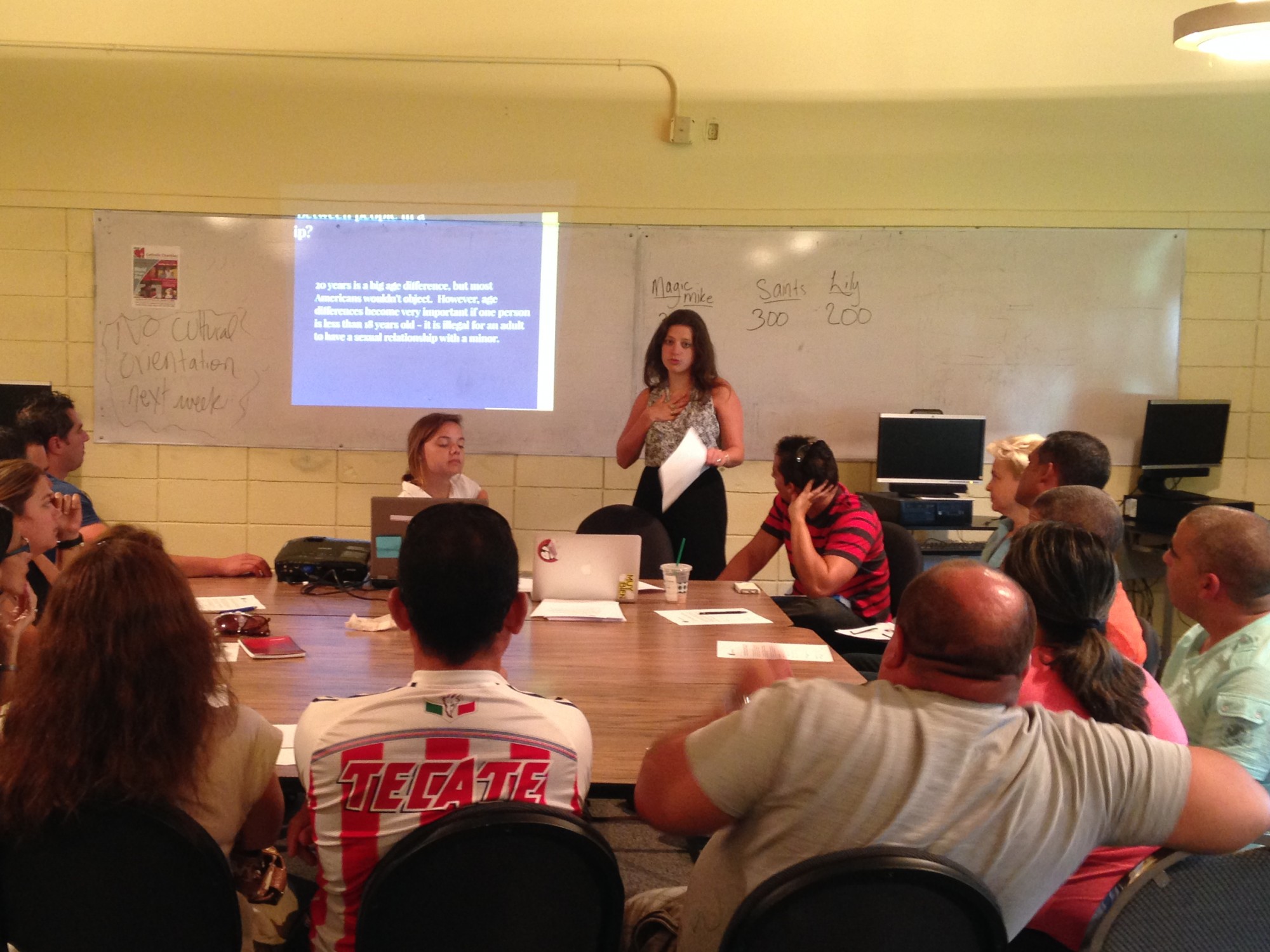“Profe! Permiso, tengo un problema”, interrupted Mario, my 50-year-old student sitting in the front seat, just as I was beginning my weekly welcome and introduction to the class. Mario is from Cuba and is a newly arrived parolee in Louisiana (a special type of admission granted through the Cuban Adjustment Act which does not include a visa or entrance as a Lawful Permanent Resident). Previously, he was a physics university professor in Cuba, and immigrated with his wife to New Orleans while his two children still remain in Cuba with their other family members. He felt the need to ask his impending question before our group discussion class started because he believed the information I gave him to be wrong. Apparently, Mario had gone to a DMV office to apply for a driver’s license, equipped with the proper documents I had laid out to be necessary… yet he left with no license after he had received no translation assistance. He was evidently frustrated because in our previous class I told him it was his legal right, even with his parolee status, to be given a translator in a government service office.
This right is one that I emphasize in many discussions in the cultural orientation class, which I teach every Wednesday at the Immigration and Refugee Services through Catholic Charities Archdiocese of New Orleans. It is a 4-week course, consisting of a two and a half hour discussion that reviews challenges and basic knowledge that are vital to a refugee’s resettlement process. In the class, we examine a variety of topics ranging from healthcare, hurricane protection, forms of identification and their applications, to childcare, adult education, job skills, and interview preparation. The cultural orientation class is a nationwide program throughout all branches of Catholic Charities and is required of clients who wish to continue receiving financial and case specific assistance from the resettlement agency. As the cultural orientation instructor, I am responsible for revising the curriculum, designing activities based on the current students, updating each client’s files, as well as teaching all the material in Spanish.
But those are just my responsibilities on paper. Off paper, the real responsibility I feel when I teach is to make these adults feel proud, capable and innovative. I want them to know that while some obstacles may seem daunting, they should proud of making such a catalyzing decision to transfer their families; and even if their dream job or even ideal level of comfort doesn’t feel attainable right now, they are capable of making it so; and though they may be discouraged about this capability, I want to push my clients as a group to think innovatively about how to improve the situation they are frustrated with.
What I have learned from this responsibility is that there is little I can do about this inevitable frustration. The parolee status given to only Cubans only allows them to receive a working permit after 3 months of their arrival. So consequently, the clients I work with are waiting and waiting to start a new life and support their family. In the meantime, I encourage clients to be proactive in other ways such as getting a driver’s license, taking English classes, building a resume and finding ways to get involved in the community- but these suggestions nevertheless come with complications. Complications like Mario’s – which is why he came back to me angry at being denied a driver’s license and the faults in the system.
For the past month, Mario had been one of my best students, contributing and leading the discussion most days. So it was no surprise that he told me what happened in the most respectful way possible. However, I couldn’t help but be sensitive to the fact that he had called my words contradictory. How was I supposed to know that the DMV office he chose had no translators, or that the person working the desk that day did not want to handle an application with special requests? How could I have predicted unfair treatment? I felt helpless. Mario had helped me each class with the Spanish words I struggled with and never once made me feel embarrassed. Him and his wife had become a support system for me when I became overwhelmed with speaking my not so perfect Spanish to a classroom full of native speakers. He never let me down as a student, and I felt like I had let him down as a teacher.
So instead of apologizing and reinforcing the written laws and instructions for receiving a driver’s license, my supervisor and I stayed after class to work through what exactly happened, to reassure Mario and to figure out an office that would help him. This experience has shown me that there may not be a perfect solution to every problem; but there is at least a partial one, a temporary one, or some way to progress, no matter how small scale that first change in the process may be. And the way to recognizing these possibilities is not through following the curriculum, but through listening to the people and their first hand experiences and needs.
By Nikki Stoumen, Changemaker Catalyst Award Winner
